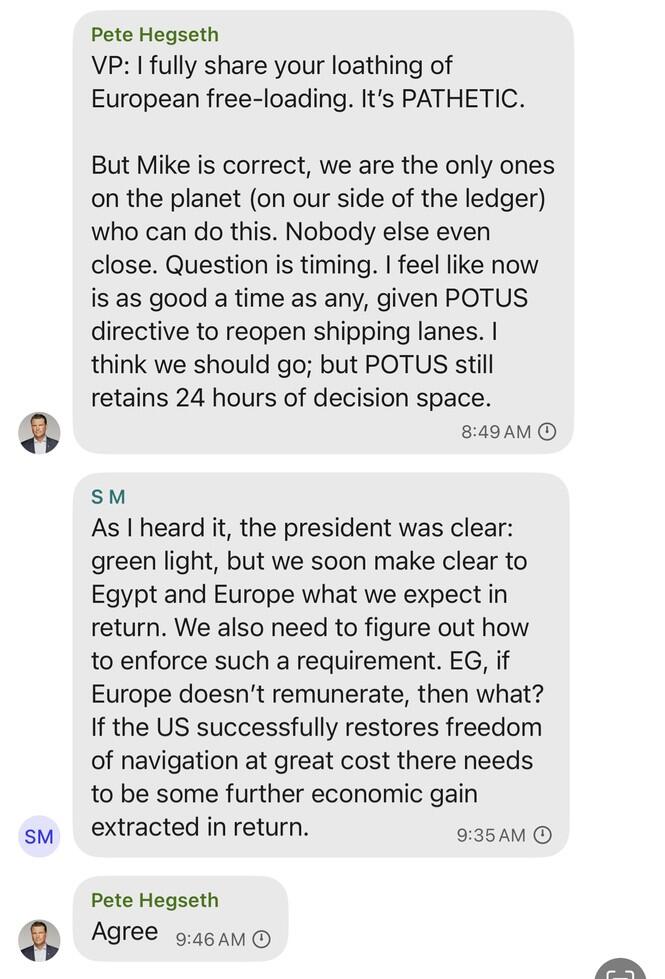United States defence officials appear to have leaked plans for airstrikes in Yemen to a journalist, after he was mistakenly added to a group chat.
The group on messaging app Signal allegedly included Vice President JD Vance, Secretary of Defense Pete Hegseth, Secretary of State Marco Rubio, and Director of National Intelligence Tulsi Gabbard. The Atlantic’s editor-in-chief Jeffrey Goldberg was inadvertently invited to view the messages by a user identified as National Security Advisor Mike Waltz, he wrote.
“Question is timing,” the user identified as Hegseth wrote on 14 March about airstrikes targeting Yemen’s Houthi faction. “I feel like now is as good a time as any, given POTUS directive to reopen shipping lanes. I think we should go; but POTUS still retains 24 hours of decision space.”
A post purportedly from Hegseth on 15 March “contained operational details of forthcoming strikes on Yemen, including information about targets, weapons the U.S. would be deploying, and attack sequencing,” according to Goldberg. Two hours later, as the user specified, explosions were reported across Yemen’s capital city of Sanaa.
The users identified as Hegseth, Vance, and Deputy Chief of Staff for Policy Stephen Miller also said they would “make clear to Egypt and Europe what we expect in return”, and specified that airstrikes should avoid damage to Saudi Arabian oil facilities.
“This appears to be an authentic message chain, and we are reviewing how an inadvertent number was added to the chain,” National Security Council spokesperson Brian Hughes told Goldberg. Hegseth later denied the incident, calling Goldberg “deceitful and highly discredited”.
Signal, an encrypted messaging app, is occasionally used for government discussions, but primarily to schedule other communications rather than sharing potentially classified information. Under the Biden administration, officials were told to use Signal sparingly, according to the Associated Press.
House Minority Leader Hakeem Jeffries and Senate Minority Leader Chuck Schumer, both Democrats, have called for a congressional investigation into the incident.
Republicans have been divided on the issue. While Senate Armed Services Committee chair Roger Wicker agreed to contribute to a bipartisan investigation, Republican House Speaker Mike Johnson said “I think it would be a terrible mistake for there to be adverse consequences on any of the people that were involved in that call.”
White House officials are also reportedly debating whether Waltz should be asked to resign. “President Trump continues to have the utmost confidence in his national security team, including National Security Advisor Mike Waltz,” said White House press secretary Karoline Leavitt.
The U.S. airstrike campaign against the Houthis began on 15 March. The Houthis said they would resume targeting ships with links to Israel earlier this month, due to Israel’s blockade of aid into Gaza.
Initial strikes on 15 March killed at least 53, according to the Houthi-run Health Ministry, and least another two deaths were caused by an attack on Sunday. Another slate of airstrikes was launched near Sanaa today.

Related content

